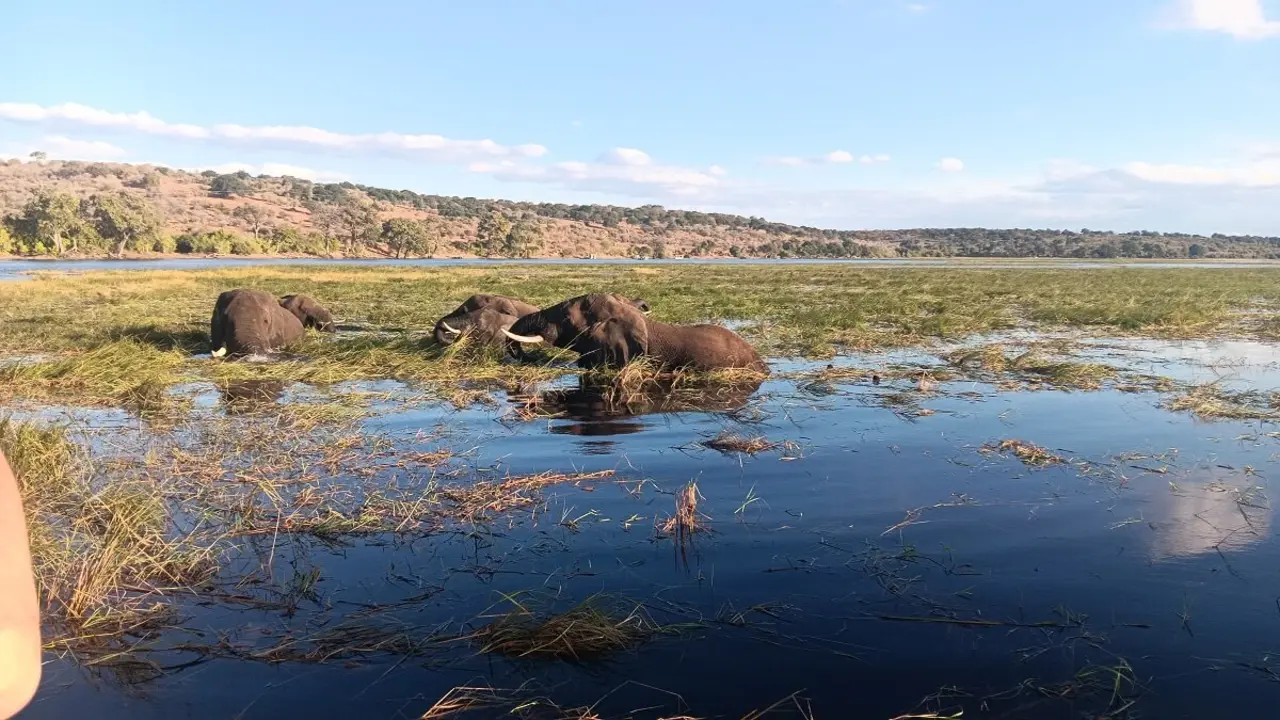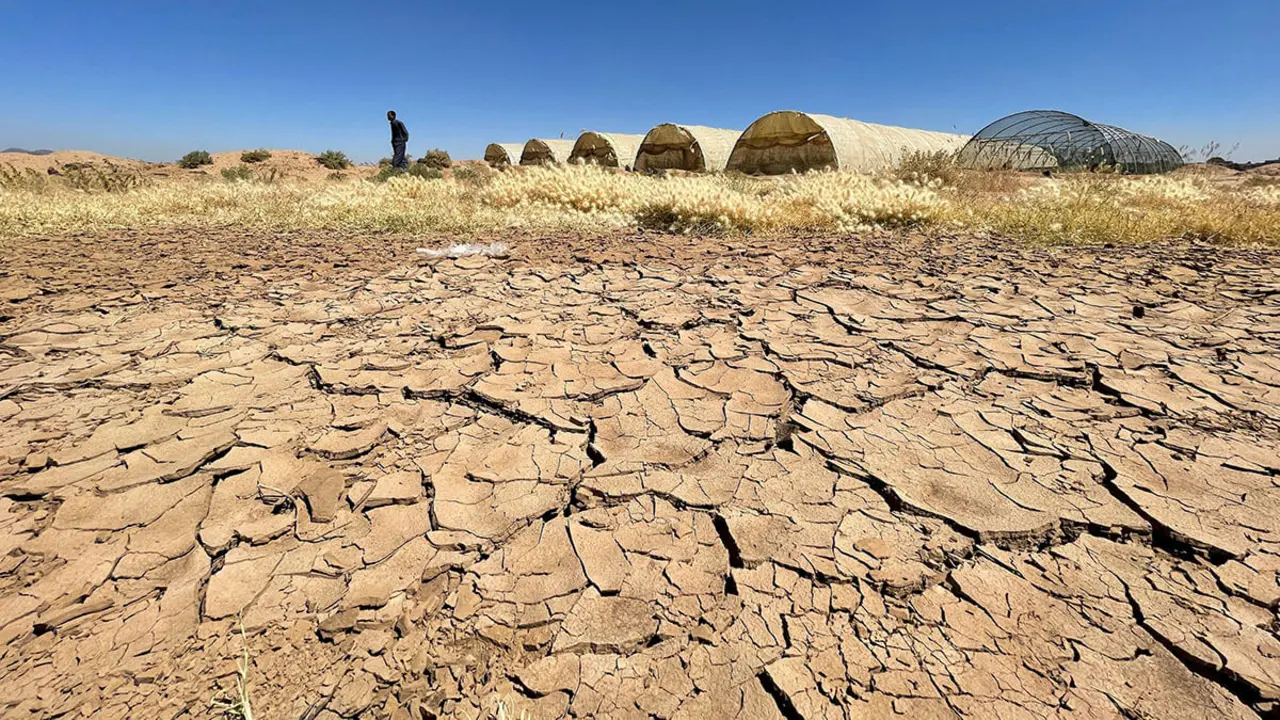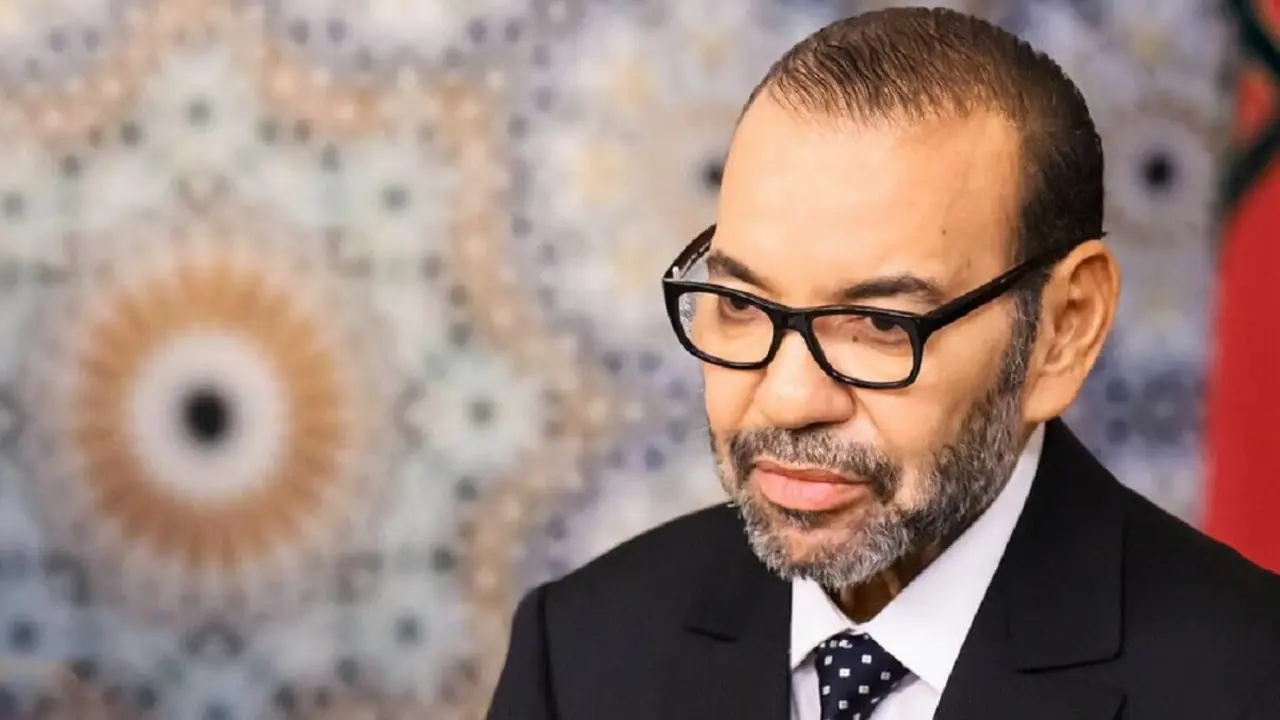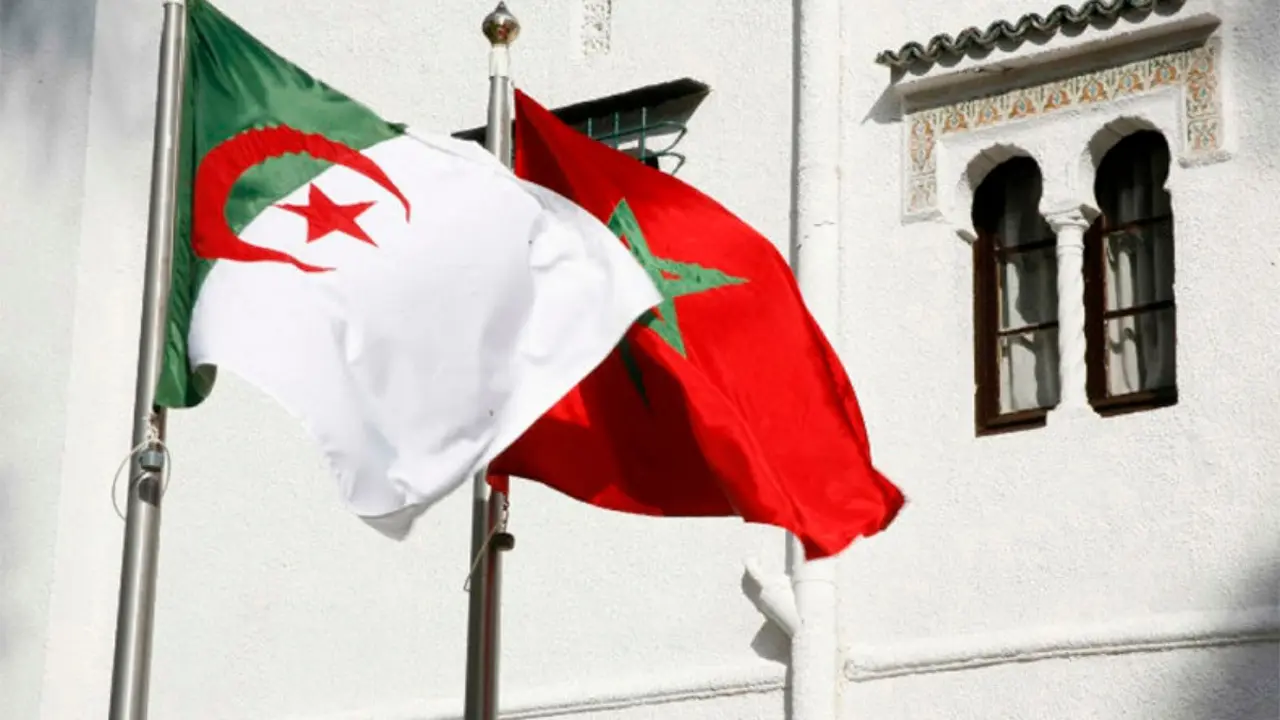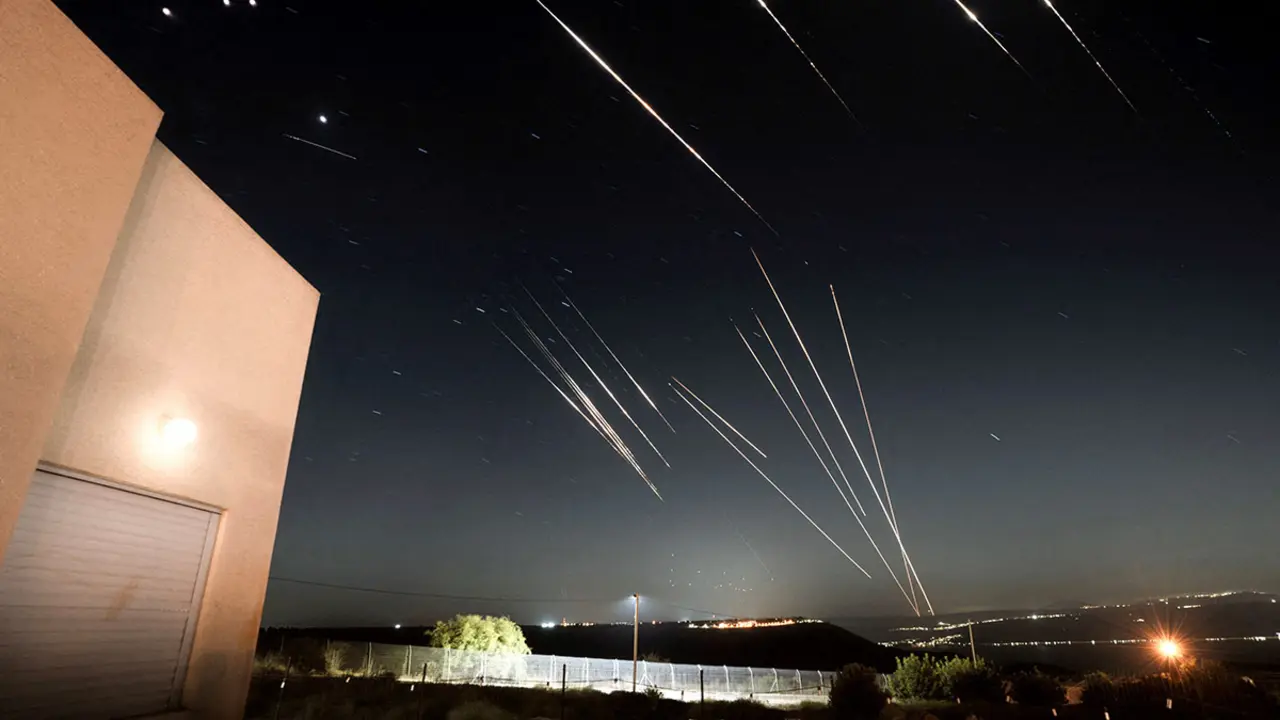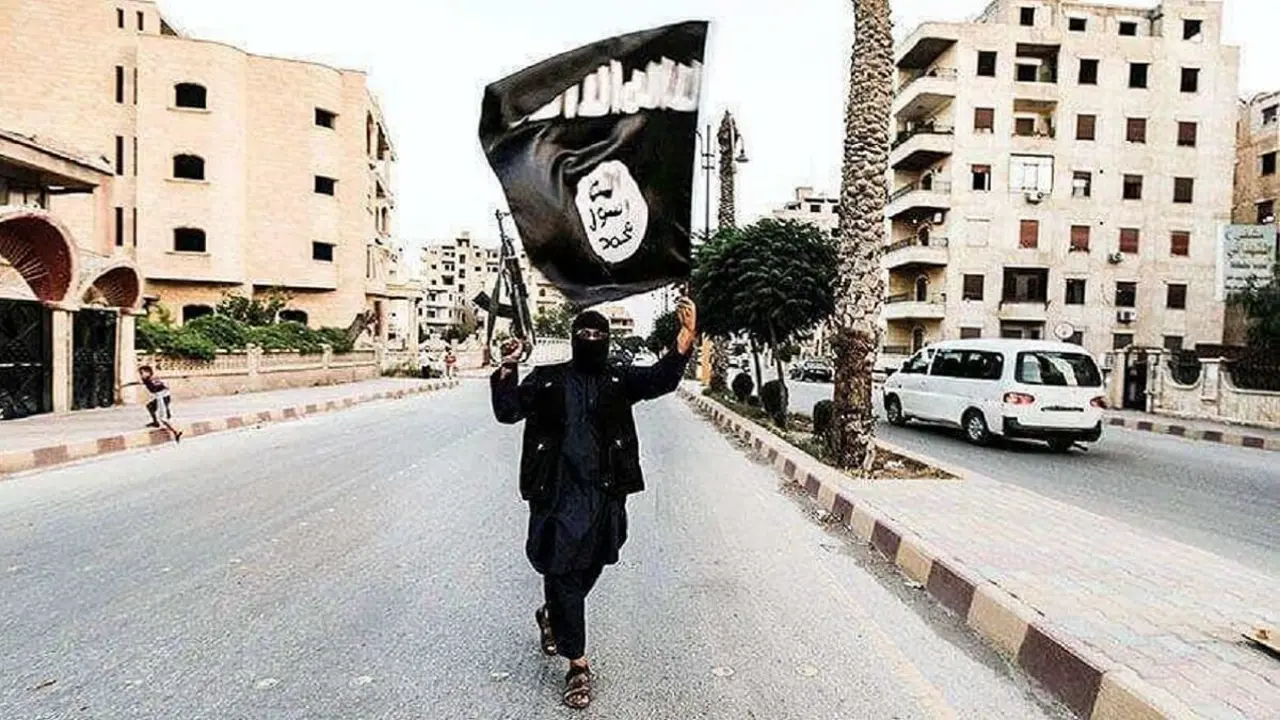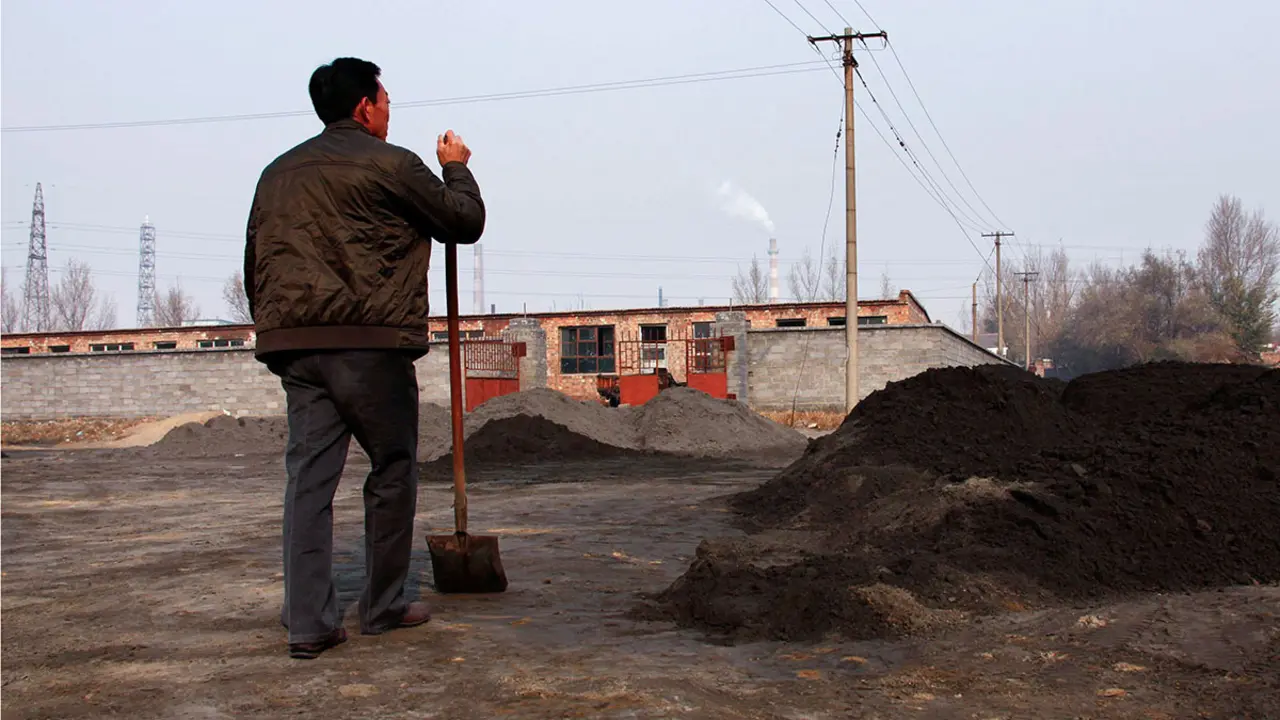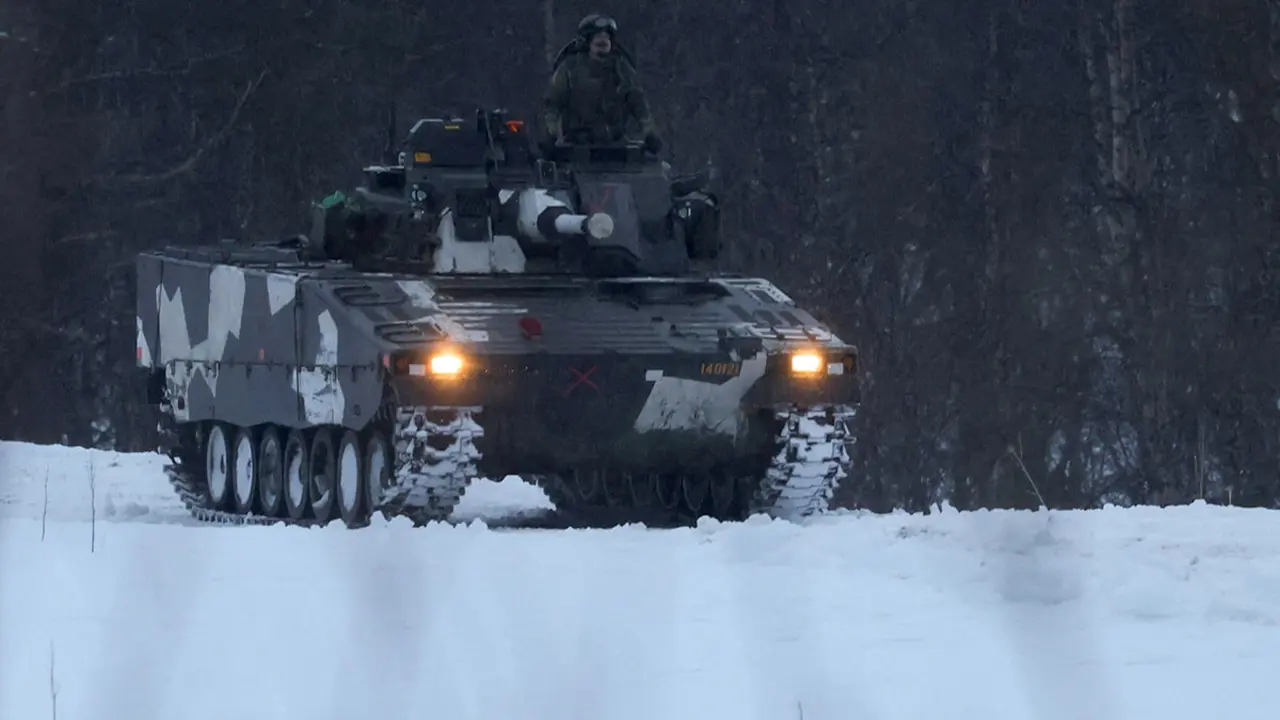Marruecos y Argelia, la lucha por el liderazgo regional

During the last few months, several news concerning new arms projects in the Kingdom of Morocco have aroused the interest of various sectors. Much more if we consider that it is not something sporadic, but a step in a process that has been going on for some time. For this reason, it is interesting to study in depth the dynamics of the area and try to shed light in order to put into context the steps that our southern neighbour is taking in terms of security and other areas.
More than a decade after the collapse of Libya and the serious process of destabilisation in Mali, regional political leaders are still trying to establish principles and an appropriate system of management that can lead the region to a reasonable situation of stability within the framework of a regional security architecture that includes not only the Maghreb, but the entire Sahel region.
The regional powers in this particular area of the planet cannot be measured or identified simply on the basis of their material capabilities, such as military spending, economic potential, population and so on, but the main feature that should characterise them is their ability to carry out and implement a wide range of security measures and policies that have an impact beyond their borders.
Logic establishes that when an aspiring actor is a key element in providing security and stability to a region, when confronted by security problems or the need to deal with them, the relevance of its power must be based on its capacity to lead, assist, adequately limit the problems and persuade the rest of the actors with the capacity to influence the situation. In a broader sense, this leadership is reflected in the capacity to affect neighbouring countries, minimise security dilemmas, establish dynamics of collaboration with other powers or figures in the regional system and limit or contain possible intrusions or interference from extra-regional figures.
But these achievements cannot be effective unless they are supported by three fundamental pillars:
- Having sufficient capacity and willingness to contribute to regional security (through military assistance, mediation, peacekeeping operations...)
- Possession of leadership resources and power beyond military capabilities (membership in transnational religious communities, strong diplomatic culture, strong economic relations)
- The acceptance by the rest of the states in the region as a regional power.
There is no doubt that in order to exercise this leadership it is very important that those who aspire to it have an acceptable domestic stability. Those who aspire to it, but suffer from structural problems, have inconsistent political institutions and their own projects as a nation are not established, will find it difficult to assume and maintain this role of regional responsibility and act as interlocutors between their region and the main world powers.
However, the reality is that it is external actors or underestimated regional powers that take on this role. Without going any further, we have the example of this assertion in the Sahel and in the area of West Africa, where it is France and Morocco that have shown themselves to be the most active elements in this sense. More specifically, France has assumed the leadership of the anti-jihadist struggle in the area, while Morocco uses its economic position, its relations and its role of moderator, supported by a growing military capacity, to extend its influence in the region.
This combination of both lines of action in order to advance its regional objectives is bearing fruit, while offering a clear counterweight to Algeria's way of achieving its position. It is a fact that both nations have the same aspirations, and that the way in which they carry out their foreign policy affects the local economic and security order.
The concept of power and the different ways to measure it is key as part of the studies to establish those elements that can be the providers of security to a region. So far, the predominant model has been that based on material capabilities. According to Derrick Frazier and Robert Stewart-Ingersoll, having a sufficient set of material capabilities, mainly military and economic, is what determines the relative influence that some states have over others in a region.
Material capabilities are undoubtedly important, but in order to achieve the status of a regional power or stabiliser in terms of security, certain preconditions must be met, including the ability to have a judicious vision of the use of these power resources and regional recognition of their leadership. Likewise, the internal dynamics of the aspiring regional power state (its political and economic system mainly) are critical factors for such regional leadership.
In the Maghreb and Sahel region, two powers are competing for this role of regional leader: Morocco and Algeria, and it is interesting to analyse both their capacities and their training to exercise them as such, especially after the events of the last year. And perhaps this analysis will shed light on the latest movements that we are witnessing at both the political and military levels.
Algeria sees itself as the natural power in the area. It has significant hydrocarbon and gas reserves that give it economic prominence, which together with considerable geographical size feeds the intention to shape these overlapping spheres of power while guiding its action at the international level. The country has a significant military capacity, capable of projecting it, and has a recognized capacity and experience in the fight against terrorism. One piece of information to bear in mind is its defence budget. Only Egypt has a larger defence budget than Algeria in the whole continent, and it is the African country with the highest ratio of arms imports.
But despite appearances, Algeria has struggled to influence regional events or gain recognition in its bid for regional authority. Even if a power has a material capacity far superior to that of its neighbours and has the purpose or desire to impose the security agenda according to its vision in its region, it is imperative that it has the recognition of its leadership through the maintenance of cordial relations with its neighbours and an intelligent management of its capacities as a state to develop a constructive role in conflict prevention, crisis management, mediation, peacekeeping operations and, if necessary, the imposition of peace.
The doctrinal rigidity demonstrated by Algeria, the disputes over relations with France and Morocco and the ineffectiveness of the regional security institutions it has tried to implement have hampered its longstanding attempts to achieve the regional legitimacy necessary to achieve this direction. The long and serious illness of the country's until recently president has also had an impact, depriving the country of the necessary internal cohesion and a strong and effective mandate that is so necessary for both to develop an effective foreign policy.
Since its independence, Algeria has sought to become a power capable of influencing the world, while seeking support in multilateral forums for its right to self-determination, the inviolability of its borders, non-interference in its internal affairs, etc.
The golden age of its diplomatic activity in Africa can be framed as the presidency of Mohammed Boukharoba, better known as Houari Boumediene, from 1966 to 1978. His period was one of intense activity as far as foreign policy is concerned, and among other actions he instigated and promoted promarxist leftist movements, as well as self-proclaimed progressive groups that opposed pro-Western governments such as those of Morocco, Niger and Senegal. And in this attempt to establish alliances with other revolutionary causes and similar movements throughout the region, he established close relations with countries like Cuba and the former Yugoslavia. During this period, elements of the Algerian security forces provided training and materials to Palestinian guerrilla groups and to organizations allied with the Cuban regime in Latin America, serving in turn the Algerian territory as a training and operational base for groups ranging from South Africa to Argentina to Venezuela.
This trend softened in part and diminished in activity during the period of government of Boumediene's successor, Chadil Bendjedid. Nevertheless, Bendjedid was probably one of the most active Algerian presidents in Africa, establishing strong ties with various leaders and offering good mediation services in inter-state conflicts. He was also instrumental in the formal admission of the self-proclaimed Saharawi Arab Democratic Republic to the then Organisation of African Unity, now the African Union, in 1984. As expected, this generated tension with its Moroccan neighbour.
The spiral of violence that led the country into a civil war in 1992 put an end to Algeria's regional aspirations. The priorities during the 1990s were, on the one hand, to avoid isolating the country and, on the other, to avoid any foreign, mainly Western, intervention or interference in its internal conflict. The end result was the acquiescence achieved by the military regime that seized power for its decision to abort the January 1992 electoral process and the subsequent ruthless counter-insurgency campaign that targeted the Islamist armed groups.
With the victory achieved against the Islamist uprising and the election of the former foreign minister, Abdelaziz Bouteflika, as the country's new president in April 1999, Algerian foreign policy gained new strength. The gradual return of peace to the country and the improvement of the economic situation facilitated Bouteflika's goal of restoring Algeria's deteriorated external image.

The first step taken in this direction and in regaining a leadership role in Africa was the fundamental contribution to the peace negotiations between Ethiopia and Eritrea in 2000. Another milestone in this process was the creation of NEPAD (New Partnership for Africa's Development) in 2001. But, curiously, it was a fact such as the attacks in New York in 2001 that, in addition to bringing about a radical change in the international panorama, reinforced Algeria's geopolitical ambitions. The president had the perfect argument to raise the legitimacy of his fight and his character as a key actor in the war against terrorism won when the country had become a laboratory of politics and counter-terrorism.
In a way, he was able to sell the idea that the Algerian regime was provident in its fight against Islamist radicals in its warnings about the danger posed by this movement. The proliferation of jihadist groups in the south of the country gave impetus to Bouteflika's goal of making Algeria a key player and partner in the international and regional fight against terrorism, and more specifically in the trans-Saharan area.
Since the launch of the Pan Sahelian initiative in 2002, in the context of the various developments in the initiative and the various structures set up to combat terrorism in the area, Algeria has been constantly invited to participate in all of them, and has been asked for its experience and lessons learned in the fight against terrorism, counter-insurgency and organised crime. The important role it has played in the fight against AQIM (Al Qaeda in the Islamic Maghreb) has been recognized as essential. Algeria's importance in the field of security has also been reinforced by a series of defence and security cooperation agreements with several EU countries, including Britain and Germany, as well as by close cooperation with the United States, reflected in the creation of a bilateral contact group on counter-terrorism and security cooperation issues.

In April 2010, Algeria took a decisive step in its attempt to assume the role of regional leader in the fight against terrorism by creating the "Joint Operational Staff Committee", located in Tamanraset. The functions of this body were to promote military and security operations, as well as coordination in obtaining intelligence and logistical support among its members (Algeria, Mauritania, Mali and Niger), and to constitute a joint force of seventy-five thousand soldiers. Algeria's objectives with this initiative were more ambitious, and it sought to extend operations to a second circle of Sahel countries that included Burkina Faso, Nigeria, Chad and Senegal. Of course, if something cannot be blamed on Algeria it is the lack of knowledge of the problem, as it is only necessary to take a look at the current situation in all the countries mentioned and how the jihadist threat is evolving in the area. But, after that effort, neither CEMOC nor the Merger and Liaison Unit created in unison and based in Algiers was able to go beyond the promises of providing intelligence and coordinating forces on the ground in the fight against violent extremist groups. The troops committed were never provided, nor was the essential communications architecture.
When the situation exploded in Mali in 2012, both CEMOC and the FLU were paralyzed, unable to respond, let alone prevent the occupation of northern Mali by jihadist groups and their attempt to advance into the country's capital.
The reasons for this ineffectiveness are rooted in a wide range of factors, from the total lack of a coordinated strategy for intelligence sharing to the absence of the fundamental mutual trust between members of these structures. The remaining members of both organizations showed their discontent by accusing Algeria of hoarding intelligence about armed groups operating in the Sahel, while Algeria suspected that some of its partners, more specifically Mali, were suffering from significant information leaks. Other reasons for the failure of both initiatives were purely structural, built in part to prevent Algeria's main regional rival, Morocco, and Western powers from taking up positions in its backyard.
Algeria's attempts to block what it perceived as regional competitors and the action of international stabilisation forces did not prevent its neighbours in the Sahel area from boosting their security alliances with France and other Western countries, going so far as to operate jointly with these countries on more than one occasion instead of coordinating their actions with Algeria.
The unrest created within the two aforementioned platforms, together with Algeria's reticence to respond to Mali's request for help in 2012 to stop the advance of the Jihadist columns, led Mauritania, Mali, Niger, Chad and Burkina Faso to step forward and create what is known as the G-5 Sahel group, whose aim is to control the threat to security in the region posed by the enormous porosity of the borders. This initiative, which has a force of approximately 5,000 men operating on both sides of the borders of the participating countries, receives strong support from France, which has taken advantage of Algeria's inaction and reticence to act militarily on behalf of its neighbours to fill the leadership vacuum left by the Maghreb country.

Nevertheless, Algeria remains confident of the indispensability of its participation, and has no doubt that sooner or later its expertise will be needed and demanded. It is also true that it has a deep knowledge of the dynamics of the jihadist networks in the area, and it is widely known the complex and discreet relationship it has with Iyad ag Ghali, the Tuareg leader and head of the jihadist group Ansar Dine since its creation in 2017 of the "Front of Support to Islam and Muslims", an association that brings together the main jihadist groups operating in the Sahel. Indeed, Algeria's role as a mediator was indispensable in achieving the peace agreement with the MNLA in 2015.
Bilateral agreements with countries in the region are also an important part of Algeria's influence in the region. Algeria has even trained two battalions of the Nigerian army and committed to building facilities for Nigerian special forces units at In-Abanqarit, right on the common border between the two countries and Mali.
Despite all the above, it is important to stress that Algeria's foreign policy, due to the reminiscences of the French colonial legacy and the violent achievement of its independence, is very much marked by the preservation of its sovereignty and non-interference. And the fruit of this is its scepticism towards the Western powers and NATO.
Another aspect that should not be forgotten is that Algeria is the African country that invests most in Defence, having the largest budget for this chapter in the whole continent, although it still maintains the ban on deploying its forces beyond its borders, something that is expected to change with the adoption of the new constitutional text.
Relations with its natural competitor in the region, Morocco, are more than tense, precisely because of this struggle to establish itself as the regional power of reference, as well as the opposite view that both have on the problem of Western Sahara, a territory that Morocco claims as its own and in fact administers, while Algeria provides shelter and support to the Polisario Front in what is nonetheless a manoeuvre to weaken and destabilise its opponent.
Despite everything that has been said so far and the Algerian position to date, its neighbours are aware that without their active involvement it will be very difficult to act to satisfactorily resolve the conflicts in Mali and Libya. We have the example of Tunisia, where Algeria's involvement was fundamental in achieving political stability in the transition after Ben Ali's government.
But as we have seen at the beginning, one of the pillars to be able to establish itself as a regional stabilizing power is the achievement of its internal firmness. And at present Algeria's solidity offers serious doubts. Since the beginning of 2019, peaceful protests throughout the country have opened a period of uncertainty. They began in February in response to Abdelaziz Bouteflika's decision to run for a fifth term despite his advanced age and delicate health.
Social pressure took effect and in March President Bouteflika withdrew his candidacy for the elections. Some time later, in April, forced by the army chief of staff, General Ahmed Gäid Salah, a real strongman of the regime and so far its strong ally, he resigned from his post. Initially, elections were scheduled for April, but after Bouteflika's resignation, the parliament, in accordance with the constitution, recognized Senate President Abdelkader Bensalah as interim president of the country, calling elections for 90 days after his appointment. But in another turn of events, Algeria's Constitutional Council cancelled the elections scheduled for 4 July by nullifying the only two nominations that had been made. Although the protests in the streets had never ceased, this only increased them, calling for more profound political changes.
During the course of the protests, groups close to jihadist organizations saw the opportunity to take the protests to a path close to their theses. The instructions, however, were to keep a low profile, not to take any false steps, and thus gradually get their message across to the disgruntled masses that occupied the streets, so that when the time came, they could take power. The main fear was that either some group out of control would carry out any kind of violent action that would provoke a furious reaction from the Algerian armed forces, or that in the face of the clear advance of the jihadists it would be the government that would carry out such an action, blaming the Islamists for it in order to have the perfect excuse to act against them. In one way or another, things did not go any further. But the situation was not clear, and there was no clear idea about how to resolve the discord on the streets towards the interim authorities, nor who was the person with sufficient credibility to negotiate a solution. General Gäid Salah positioned himself as the key element, but without explicitly taking power. For his part, Bensalah remained in office after the 90-day term expired, and in the meantime, law enforcement officials arrested prominent businessmen, military intelligence and politicians, all of whom were accused of corruption. Some of the detainees belonged to the close circle of former President Bouteflika.

The political system built during the Bouteflika era was characterized by a very strong presidential figure supported by a security apparatus with the same characteristics. A state whose centre of gravity was the economy with important social aid programmes, supported by the large profits from the exploitation of the country's energy resources. Decision-making processes were perceived as opaque, and politicians, members of the military and intelligence services, and prominent businessmen were all striving for more influence and engaged in infighting over this, but always behind the scenes of power.
Nevertheless, the system provided an acceptable standard of living for the general population, as well as precious stability. But after witnessing the various movements in several Arab countries, the prospect of an uncertain transition and lack of leadership began to creep in as those members of the generation that led the revolution and fought for independence entered the last stage of their lives or died. This degenerated into political paralysis due to the lack of consensus among the elites on how to deal with the post-Bouteflika era.
After a prolonged period of interim, beyond what is required by law and during which the protests did not cease, elections were called for December 12. In these elections, the former Prime Minister, Abdelmadjid Tebboune, won a direct victory in the first round, receiving 58.15% of the votes. Tebboune was more than 40 percentage points ahead of the second place, former Tourism Minister Abdelkader Bengrina, who received 17.38%. None of the three remaining candidates exceeded 11%. Nevertheless, the participation rate is the main indicator of the political situation in the country: around 40%, the lowest in the history of the Algerian elections. This can be deduced from the extreme popular discontent with the political elite.
If we compare this data with previous elections, the figures are more than significant. The participation rate in 2014 was 50.7%, a dramatic decrease compared to 74.56% in 2009. This downward trend over time reflects the progressive rejection by Algerians of a political system they consider ineffective and corrupt. The clearest example once again is the continuing protests in the capital following the announcement of the election results.
Tebboune, 74 years old, is considered a technocrat, and arrives at the presidency after a long political career that was cut short when he was dismissed by Bouteflika due to alleged friction with influential businessmen in the country and suspicions of interference in the country's foreign policy, which is the power of the president. The new president's biggest challenge will be to convince critics that he is not, as they claim, part of a plot orchestrated by the military authorities to preserve the old political order and that "everything changes without changing anything".

Another fundamental aspect, although not the least, will be how to confront the most serious economic crisis the country has experienced in decades. Energy exports, which account for 95% of state income, have fallen by 12.5% in 2019. Foreign currency reserves have plummeted and public spending is expected to fall by at least 9% this year.
But shortly after starting his term, an unexpected event has become a major problem for both the new president and the country's stability. Only four days after his inauguration, General Ahmed Gaïd Salah, ENP's chief of staff, deputy defence minister and head of the intelligence services, died suddenly of a heart attack. In April 2019, he was the key person in achieving the resignation of President Bouteflika, in order to try to stop the popular pressure of the Hirak movement that was also demanding his resignation, thus managing to become the real strongman of the country. Gaïd Salah was immersed in overseeing the transformation of the army, achieving its independence from political power and strengthening its role as arbiter of political disputes, ensuring that it remained under the control of civilian power.
The disappearance of a key figure like this only throws up more uncertainty about the drift that events in the North African country may take. Without his collaboration, the new president lacks someone with the experience, charisma and knowledge necessary to be able to carry out the reforms demanded by the population in a calm manner, avoiding the sure attempts that the Islamists will make to alter the situation in order to take control of the country.
The current situation has not gone unnoticed by Algeria's great competitor in the region and at the same time eternal enemy, the Kingdom of Morocco. If Algeria offers us a clear example of a nation that has invested its efforts in ensuring that its important natural resources and its high investment in defence are translated into effective leadership in the Maghreb region and the Sahel area, Morocco is the paradigm of an aspiring actor to become the reference and provider of regional security that effectively uses its least resources, transforming them into effective tools to increase its regional influence.
The Alaouite country has used its most appropriate resources very intelligently to project its power in the region, while gradually increasing its cultural and economic relations and interconnections with the rest of the countries in the area. Morocco's skilful use of such a decisive factor in the Arab world as religion, as well as the comparative advantage of its companies, its industry and its commitment to increasing its capacities in terms of the use of renewable energies, has placed the country at the forefront of a large number of issues that affect not only the region, but beyond it.
If the focus is on military capabilities, these are obviously less significant than those possessed by Algeria, but they also serve as a strategic boost to its interests, as demonstrated by the launch in November 2017 of an earth observation satellite, making the Kingdom of Morocco the first African country to have such a facility. In return, and within the rivalry and competition between the two countries, Algeria is preparing to launch its own satellite from China, but its capabilities, once operational, are much less than the Moroccan one, which provides its country with a means of obtaining intelligence and independence in this field unparalleled in the entire region.
Likewise, and continuing on a strict security level, the kingdom's intelligence services are very active in certain areas of the Sahel, and the Moroccan telecommunications company Maroc Telecom, which has four subsidiaries on the African continent, is believed to be involved in obtaining information on extremist groups in those countries where it operates.

Unlike Algeria, Morocco has played the card of getting involved outside of its borders, at least on occasion. In 2016, it helped in the fight against Boko Haram by providing Niger with military equipment. The announced forthcoming return of the Alaouite kingdom to the African Union will undoubtedly have a visible impact on the evolution of the role of the Royal Armed Forces in the Sahel region and adjacent areas.
The country's traditional position in the African concert has been slightly moderate, even though it gained some weight after the accession to the throne of Mohammed VI in 1999. And all of this has solved in a very effective way the socio-economic and security problems that affected the Alaouite regime in 2011 as a result of the movements that emerged during the Arab spring.
Mohammed V, grandfather of Mohammed VI, always had a great respect and recognition in the African continent and was known for being a convinced Africanist and anti-imperialist activist. During his reign, Morocco was involved in the peacekeeping operation in the then Belgian Congo, while Mohammed V supported African nationalist leader and father of the Congolese nation Patrick Lumumba. He also took the initiative of the Casablanca Conference, which adopted a charter with a series of anti-colonialist and anti-segregation terms that served as the basis for the establishment of the Organization of African Union in May 1963.
His son, Hassan II, came to power in 1961 and followed his father's policy. He usually resorted to the metaphor of comparing Morocco to a tree that has its roots in Africa and its branches in Europe. A clear example of his line of action is the creation of the Ministry of African Affairs. When the conflict in Western Sahara emerged, it highlighted the deep divide and the economic and ideological differences that existed on the continent between countries that could be described as moderate and aligned with Morocco and those that called themselves progressive and supported Algeria. In response to the admission of the self-proclaimed Saharan Arab Democratic Republic to the Organization of African Unity, Morocco left that organization in 1984, intensifying the division between the aforementioned blocs.
Since then, Morocco's main concern had been the fear of being caught in what could be considered a pincer with Algeria in the east and Spain in the north, in addition to complicated relations with its southern neighbour, Mauritania.
Mohammed VI's accession to the throne was accompanied by a clear strengthening of the alliances woven by his father, Hassan II, in West Africa, imbuing them with a marked economic character, which was coupled with the traditional personal relations and security arrangements achieved by his predecessor.

After many years of focusing on seeking alliances and influence in French-speaking Africa, the Kingdom of Morocco has turned its foreign policy towards the countries of English-speaking Africa, but with the same objective, partly because the so far indispensable trade and economic relations with the EU may to some extent be affected by the different stance towards the problem of Western Sahara. As can be seen, this issue is one of the centres of gravity of Alaouite geo-strategy. This makes it imperative for Morocco to reduce its economic dependence on the EU as the main market for its products and to seek new markets in the emerging economies of the African continent, which, if achieved, will undoubtedly be the clearest example of turning necessity into virtue. However, from the Spanish point of view, this factor must be taken into account and followed very closely. The less Morocco needs from the EU, the freer it will feel to deepen its historical claims. The recent move regarding its sovereign waters and the exclusive economic zone is very likely to be part of this overall reorientation of the country. A first step towards being in a position to move forward, if the circumstances are right.
An example of the country's economic activity is the export figures for phosphates, which make it the world leader in the sector. Similarly, companies as important as Royal Air Maroc, Maroc Telecom, the Adoha Group, or the Attijariwafa Bank are very well established in a significant number of African countries, covering sectors such as mining, air transport, telecommunications, real estate development or banking. As for the latter, three Moroccan entities are leading the way in all French-speaking West Africa: Attijariwafa Bank (AWB), Groupe Banque Centrale Populaire (BCP) and Banque Marocaine du Commerce Exterieur (BMCE).
The aim is to become the regional financial platform and the gateway to the continent's potentially profitable emerging markets, and to this end, in addition to the establishment of the aforementioned entities, the "Casablanca Finance City" has been created. And the truth is that a large part of Morocco's attraction is the perspective that it offers of becoming the epicentre of a three-way cooperation in which it can use its tools and advantageous position to mobilise and attract the resources of its allies in the Persian Gulf and those of its European partners to invest them in the African continent.
However, this policy is not without its critics, and some fear that the aim is to flood African markets with European and Moroccan products. This translates into the main argument against Morocco's entry into the Economic Community of West African States (ECOWAS), which would give Moroccan products tariff-free access to member countries. Of course, the Moroccan kingdom argues that its investment policy and its interest in joining the ECOWAS group is not guided by a "predatory" interest. And it emphasizes that its integration and the elimination of tariffs would be a progressive process that would allow the other ECOWAS member countries to adapt their economic policies and laws to achieve greater mutual benefit from the potential offered by such economic integration.
In parallel to this political and economic shift towards Africa, what we can consider the transnational heritage of "Sufism" has been very actively employed as a form of religious diplomacy. The Alaouite monarchy has been concerned with seeking a rapprochement with the networks of this current of Islam in order to create a deeper link between Morocco and the countries of sub-Saharan Africa, not only with the intention of promoting its moderate vision of religion, but also to ensure that the moral and religious authority that King Mohammed VI represents in his country goes beyond borders.
In the eyes of the EU, and from a security point of view, this initiative is very attractive in terms of what it means in terms of establishing dynamics to counteract the advance of jihadist terrorism in the Sahel, and it has some support, but there is still a certain amount of caution because of the authoritarian drift it could take.

Morocco's role in peace and security policies within the African Union has yet to be defined. But anti-terrorism policy, the prevention of violent religious extremism and the control of illegal immigration are the three priority issues for the Alaouite kingdom.
The reality is that it has attached great importance to its return to the African Union and maintains a very large permanent representation, with its delegates being very actively present in various forums and discussions of the African Union Commission at its headquarters in Addis Ababa.
Morocco is learning very quickly to deal with the complexity of the various conflicts on the continent, although it still needs to develop the necessary agility to work and even lead the accelerated pace of the dynamics of peace and security in Africa.
In the medium or long term, in the process of finding its place in the resolution of issues concerning peace and security within the AU, it will be confronted with its main competitor in the area, Algeria, which still maintains a great influence in this field, although it is true that the situation of certain uncertainty and instability that the country is experiencing since the resignation of Bouteflika plays against it, and this is a fact that has not gone unnoticed by Moroccan strategists.
The other point that will inevitably be the subject of friction is the dispute over Western Sahara. Morocco and Algeria not only dispute a "duel" to reach the one, and preserve the other's regional hegemony, but they have opposite visions of the problem.
In short, the central objectives of the Alaouite kingdom's policy in Africa are to consolidate its interests in the Western Sahara and to offer a credible and viable counterweight or alternative to the regional and continental influence that Algeria has so far exercised. And both are, without a doubt, two of the main reasons that have led Morocco to return to the AU. As a collateral objective and linked to the two previous ones, we can consider the attempt to diminish the dependence on the European Union, since it is nothing but a ballast that greatly limits the capacity for manoeuvre both in the Western Sahara and with other territorial or maritime claims. Any move that affects the interests of the EU or any of its members or international decisions or agreements such as those on the Western Sahara could, in the worst case, end up with a response in the form of sanctions as has already been seen in other conflicts. Therefore, the less dependence there is on the EU, the more freedom Morocco will have to act without fear of being affected by possible reprisals.
With reference to the Sahara issue, the evolution of the Moroccan attitude is clear. In the past, its position included boycotting any meeting where the issue was discussed or where the Sahrawi Arab Democratic Republic was represented in any way. Instead, it is now focusing on strengthening its presence in Africa in order to achieve its long-term objectives, trying to secure a favourable position within the African continent towards them.
Finally, the resource of what has come to be called "spiritual diplomacy" is being employed to export its model of success in dealing with religious institutions and personalities to combat violent religious radicalism. This is part of Morocco's regional strategy and aims to achieve three objectives:
- Improve national security
- Improve the limits offered by other formal regional security mechanisms.
- Breaking with the way Algeria is building its own stamp.
However, Morocco's success in combating terrorism through a holistic approach that combines, alongside the dissemination of anti-violence narratives, a programme of reintegration of ex-combatants and investment in social development and services for marginalised populations vulnerable to radicalisation, is internally opposed and not shared by all sectors. Thus, while the security and intelligence services are working with reasonable success and are managing to prevent attacks and the establishment of jihadist cells on their territory, the problem of young people leaving the country following the call of the jihad to join Daesh's ranks persists. It is estimated that more than 1,500 have travelled to Syria and Libya to fight alongside Daesh or other jihadist-type armed groups.
Morocco's performance in the Maghreb and Sahel region is complex. If it is only judged on the basis of its "power of seduction", the Alaouite kingdom meets all the requirements to assume regional leadership. Its economic and trade policy, reinforced by its religious and cultural diplomacy, has gained enormous influence. But the great challenge is represented by Algeria, which impetuously opposes the plans drawn up by its neighbour, restricting its capacity to manoeuvre in order to act effectively as a force or stabilising element, especially in those areas it considers its natural area of influence, such as Mali, Libya and Niger. And that is the reason why we can explain this small regional arms race between countries. Both countries look at each other with suspicion, the interests at stake are many, the danger of jihadism is growing every day and the risk of destabilisation that it represents, together with the uncertainty and latent tension that Algeria has been experiencing for months, does not help to calm either country.
And, paradoxically, this conflictive regional interaction between both nations is the greatest obstacle to their claims to leadership.
Bibliography
Anouar Boukhars (2019). Reassessing the power of regional security providers: the case of Algeria and Morocco, Middle Eastern Studies
Abderrahim, T., and Aggad, F. 2018. Starting Afresh: The Maghreb’s Relations with Sub-Saharan Africa.
Boukhars, A. (2018). Maghreb: Dream of Unity, Reality of Divisions. Doha: Aljazeera Centre for Studies.
Dalia Ghanem (2019). Algeria’s Crisis Outlook and Regional Implications. Konrad-Adenauer-Stiftung e. V.
Cédric Baylocq, Aziz Hlaoua (2016). Spreading a “moderate islam”? Morocco’s new african religious diplomacy.
Lidet Tadesse Shiferaw (2019). Peace and security in Africa: drivers and implications of north Africa’s southern gaze. ECDPM


